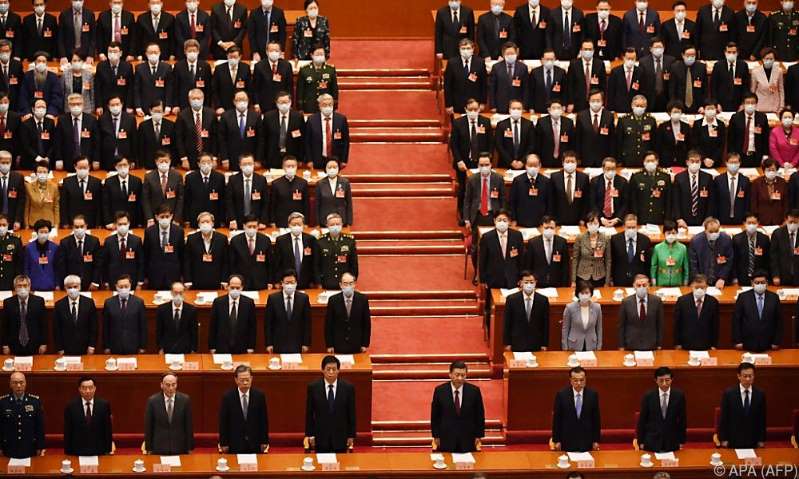The MPs of the Chinese People's Congress voted in favor of the controversial electoral reform in Hong Kong on Thursday. Parliament adopted the resolution almost unanimously at the closing session of its annual session in Beijing. Details of the reform were not made public. In any case, the influence of the pro-democratic opposition is to be suppressed. The project has met with sharp criticism in Hong Kong and internationally.

Image: APA (AFP)
As reported by the Hong Kong media, there are plans to enlarge the committee for the election of the Hong Kong head of government from 1,200 to 1,500 members. The pro-Beijing camp, which is already dominant in the committee, will thus be further strengthened. In future, the same election committee will also decide who is allowed to run in the Hong Kong parliamentary elections, which means that candidates would indirectly depend on Beijing's approval. According to the reports, the parliament is to be enlarged from 70 to 90 seats.
The electoral reform is another blow to the liberal system in Hong Kong. It aims to ensure that the Chinese Special Administrative Region is “ruled by patriots”. Critics had warned that the reform would de facto bury democracy in Hong Kong. From Beijing's point of view, only those who follow the line of the Communist Party are “patriotic”.
Great Britain sharply criticized the electoral reform for the former British crown colony of Hong Kong. “This is Beijing's latest move to hollow out space for democratic debates in Hong Kong, contrary to promises made by China,” said Foreign Minister Dominic Raab. “This further undermines confidence that China will live up to its international responsibilities and legal obligations as a leading member of the international community.”
At the end of its annual meeting, however, the People's Congress had also set the course to make the second largest economy more independent. With the new five-year plan, the government wants to strengthen domestic demand and massively increase investment in research and development by more than seven percent annually. This is intended to reduce the technological dependence on foreign countries. The strategy is a response to the disruption of supply chains caused by US sanctions against China's technology corporations and the global recession caused by the corona pandemic.
With the work report by Prime Minister Li Keqiang, MPs also approved the growth target of “more than six percent” for this year. With strict measures such as curfews, quarantine, mass tests, contact tracing and entry restrictions, China has largely brought the pandemic in the country under control. Everyday life and economic activity have long since returned to normal. The Monetary Fund is even anticipating 8.1 percent growth in China this year.
Against the background of growing tensions with the USA, India, Taiwan and neighbors in the East China and South China Seas, defense spending is also expected to rise sharply by 6.8 percent. China's head of state and party, Xi Jinping, called on the military to be “ready to fight” to defend the country's “national sovereignty, security and development interests”. He also called for a “high-profile strategic deterrent”.
At the same time, Li Keqiang underlined the common interests of the People's Republic and the USA. There are many areas for cooperation and he hoped that relations between the two states could develop in a healthy way. This should be based on respect for the respective interests, on cooperation in which both could win, and on non-interference in internal affairs. China will continue to open its economy to foreign investors, Li added.
Li spoke after US President Jen Psaki announced that President Joe Biden's administration was planning a first meeting between US Secretary of State Antony Blinken and China’s senior diplomat Yang Jiechi in Alaska next week. Biden's security advisor Jake Sullivan and Chinese State Councilor Wang Yi are expected to take part in the meeting next Thursday. The Ministry of Foreign Affairs in Beijing confirmed the appointment.

